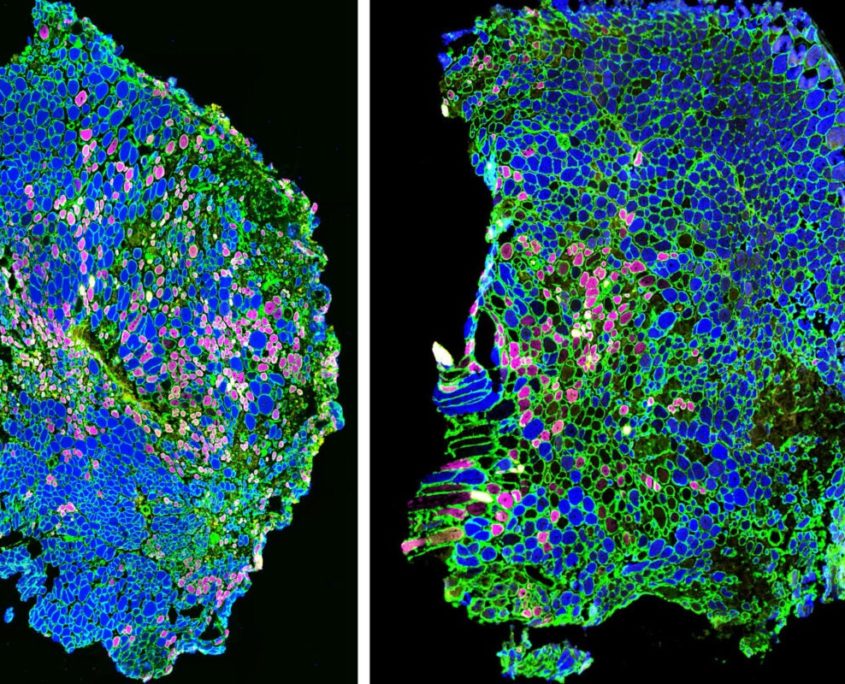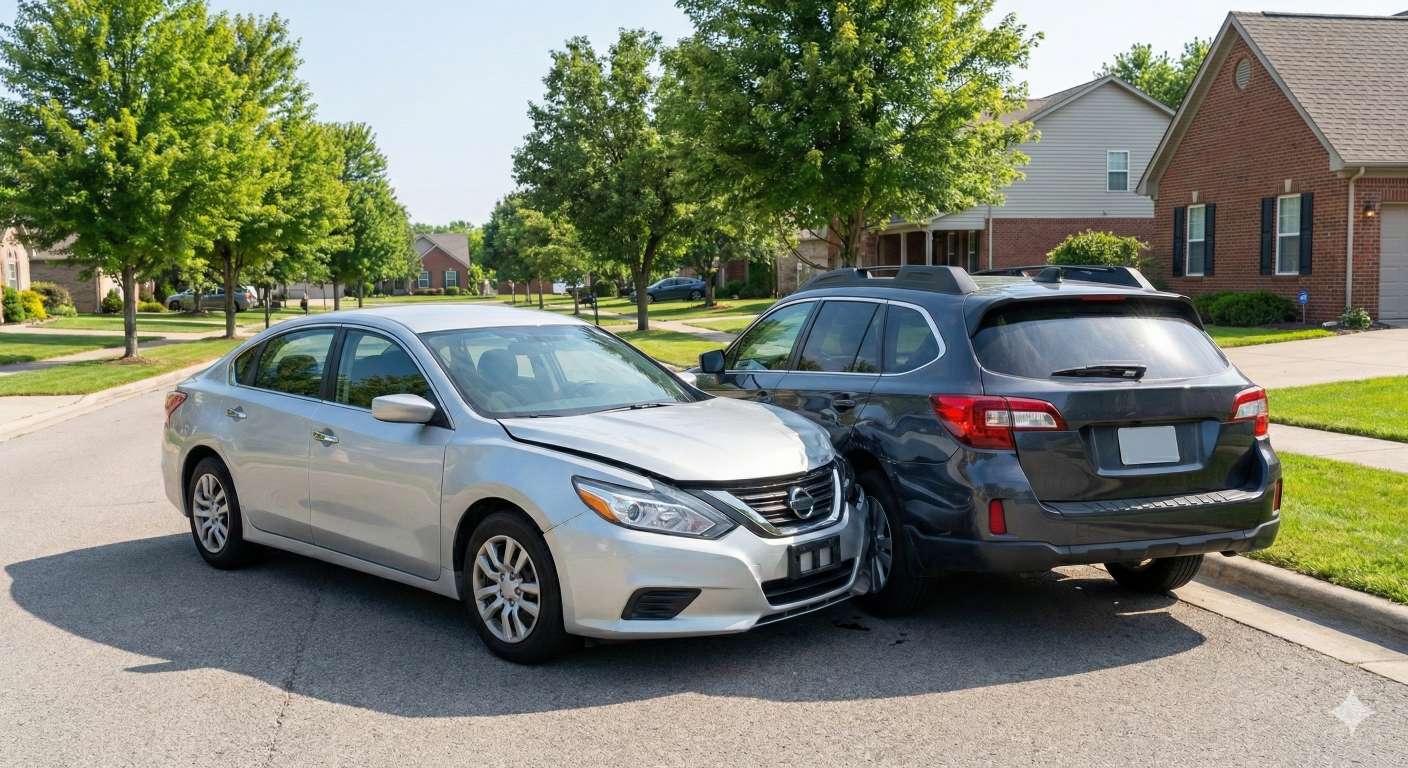No Fee Unless You Win
No Fee Unless You Win
Scientists at the Wyss Institute and Harvard John A. Paulson School of Engineering and Applied Sciences recently published findings that special massages, known as mechanotherapy, help injured muscles recover stronger and faster than untreated muscles. This ties into our discussion about inflammation and chronic pain because researchers believe the compression squeezes inflammation-causing cells out of the muscle tissue. They found that mechanical loading, through a robotic massager designed to deliver consistent and tunable compressive forces to injured muscles, rapidly clears immune cells (neutrophils) out of severely injured muscle tissue. This process also removes inflammatory cytokines released by neutrophils from the muscles, enhancing the process of muscle fiber regeneration.
Science nerds are suckers for colorful microscopic images, and these do not disappoint:

Credit: Wyss Institute at Harvard University
The left side shows untreated injured muscles, demonstrating that the prolonged presence of neutrophil-secreted factors impairs the production of new muscle fibers. In contrast, the right side shows significant muscle fiber type composition changes and looks more like a healthy muscle. In a nutshell, treatment helps restore proper muscle composition and function.
We must temper our excitement since the study only included animal models (mice), but the results are encouraging since they suggest it is important that inflammation is quickly resolved to enable the regenerative process to run its course. The implications in humans are that massage therapy could positively influence tissue regeneration, repair, and successfully be used in patients with diseases that prevent the use of drug-based interventions.
One of the more interesting findings relates to the optimal amount of time for neutrophil presence in injured muscles. Researchers depleted neutrophils on the third day after injury with mechanotherapy; in these mice, the muscles showed larger fiber size and greater strength recovery than those in untreated mice. This confirms that neutrophils are necessary in the earliest stages of injury recovery but need to be eliminated from the injury site to optimize improved muscle regeneration. As suggested by Conor Walsh, a Professor of Engineering and Applied Science at Harvard University, “These findings are remarkable because they indicate that we can influence the function of the body’s immune system in a drug-free, non-invasive way.”
These findings give credence to the advice some of our clients have received from their health care providers: following a car accident, rest for a few days, use heat and cold, take Epson salt baths, and then after three days, if symptoms have not improved, engage in some form of physical therapy.
From a personal injury perspective, where most car accident victims suffer muscle injuries, this study and other research efforts could lead to the development of external, mechanical interventions that help accelerate and improve muscle and tissue healing in humans. The implications for recovery and potentially increased function are encouraging.
Read the article about the Mechanotherapy study from Wyss Institute at Harvard: “Massage Helps Injured Muscles Heal Faster and Stronger.”
And check out the rest of our educational articles on Personal Injury Law in Arizona.

Victims of an accident can experience both physical and psychological trauma. Signs of emotional distress include anxiety, panic attacks, depression, insomnia, debilitating fear, social withdrawal, a...
Posted by Joseph D'Aguanno
When you hire a car accident lawyer Phoenix, they will send the insurance company and any other parties responsible for the crash a letter outlining your claims, damages you’ve incurred, and th...
read morePosted by Joseph D'Aguanno
According to the Arizona Department of Transportation, approximately 30% of all motor vehicle accidents in the state result in an injury. The most common car accident injuries include whiplash, b...
read moreIf you or a loved one has been seriously injured, please fill out the form below for your free consultation or call us at (602) 258-0646
2525 E Arizona Biltmore Cir #A114, Phoenix, AZ 85016
get directions